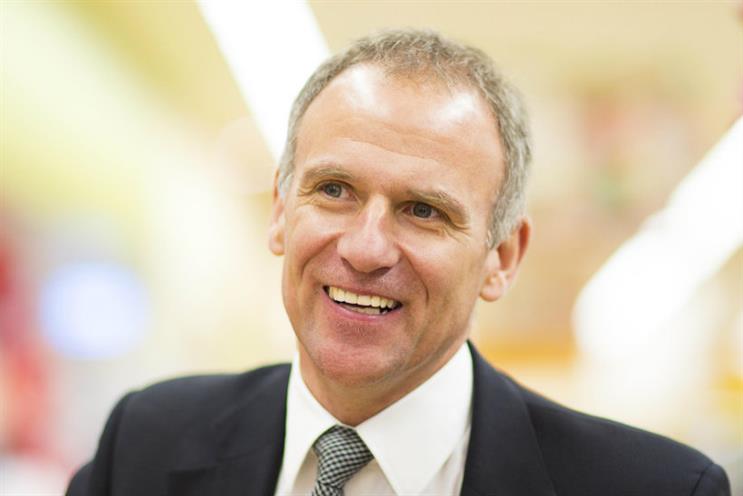
Lewis outlined his progress at the retailer to date during the Marketing Society's annual lecture last night (10 March), telling the audience that Tesco may have just continued on its path of slow decay had it not been for the accounting scandal.
It was drama - you force yourself to re-evaluate in a way you don’t when losing a little bit over time
The "cataclysmic event" took place three weeks after Lewis arrived from his role as president of personal care at Unilever, in September 2014.
He said: "It was a catalytic change. There was point at which it was drama, in a way you force yourself to re-evaluate in a way you don’t when losing a little bit over time."
Lewis described the slow process of rebuilding the brand, including "naively" asking Tesco employees to share their thoughts on improving the business with him. That resulted in one Sunday spent reading more than 1,000 letters.
From challenger to tolerated brand
Much of Tesco’s success in the 1980s came from its position as a "cheeky" challenger brand, Lewis said, as well as what he described as its "three-circle model". This comprised its operational model, its store buying strategy and ‘Every little helps’ customer proposition. In particular, Lewis highlighted the strength of the operational model, which encompassed logistics and the shop floor working together hand in hand.
The success of this model propelled the brand to a place of respect and success in the UK, claimed Lewis. Its confidence in its customer proposition, he added, was exemplified by the retailer’s ‘Cheerful Sole’ Dotty advert.
Tesco peaked in 2007, when it accounted for 31.8% of the grocery market, according to data from TNS, and it was after this the brand came under strain. Profits began falling in 2012, as did Tesco’s market share, under then-CEO Philip Clarke.
"When you come under severe financial pressure, when the business starts to not grow, you start adjusting that [three-circle] success model in a way that damages your proposition," said Lewis of the decline. "That's how people go from liking an experience to not an experience. That’s what started that long-term decay of the brand."
Lewis described Tesco as a "tolerated" rather than loved brand – with the firm’s marketing efforts, powered by BBH, now focused on recapturing that humour and love.
What’s next?
Tesco currently over the accounting scandal, though Lewis wouldn’t comment on the ongoing investigation. Asked if he had any idea when the investigation would conclude, he said "none at all".
It reported a £6.4bn pre-tax loss in in the year to 28 February 2015, one of the biggest in corporate history, and embarked on a cost-cutting programme that saw the closure of 68 stores and the axing of some 10,000 jobs. Tesco also sold off its Blinkbox music and books business and shut down the Hudl tablet project.
The retailer must also face the rise of the discounters, Aldi and Lidl, which hold almost 10% of the grocery market between them. Tesco remains under 30%.
But Lewis batted off claims that the discounters were Tesco’s main concern.
"The bigger challenge for us is to get back to a place where shopping in a shop like Tesco, and the larger stores, is worth the trip," he said.
"What we want to do is not be the cheapest, but put together the equation I talked about before. What customers want is range, service, availability and price - not just price."
Lewis recognised that the progress of the German retailers was "significant", but emphasised Tesco would differentiate on elements other than price.
"People have not decided not to shop in Tesco and to shop somewhere else," he said. "What they’ve done is taken one of their purchase occasions in Tesco and taken it somewhere else.
"What we’ve seen over the last 12 months is a [reversal] of that trend by being more competitive. Do I see a need for us to be more competitive? Yes I do. Can we do it in a way that’s sustainable? Yes. The critical thing is whether we can do it in a differential way, because matching is a zero-sum game."



.jpg)
.jpeg)
